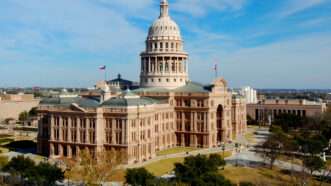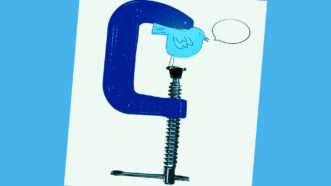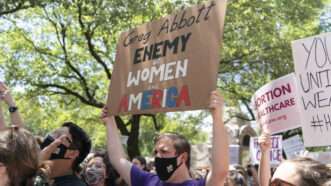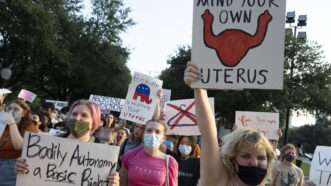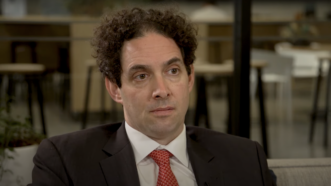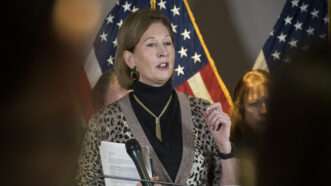Civil Liberties
The Good and the Bad in the 666 Bills That Took Effect This Week in Texas
While libertarians will be inclined to applaud some of the new laws, others exemplify familiar conservative excesses.
Here's a Rarity: A Former Prosecutor Is Facing Criminal Charges for Violating Her Oath of Office
Former District Attorney Jackie Johnson may face accountability for her official actions in the Ahmaud Arbery investigation.
Challenging Unconstitutional Civil Liability Schemes, as to Abortion, Speech, Guns, Etc.
By and large, those schemes (like Texas’s SB 8 liability for abortion providers) must be fought by raising the Constitution as a defense in a civil lawsuit—not through preenforcement challenges.
Conservatives Should Worry About the Texas Abortion Law Too
The same legal ruse can be used against gun rights and other civil liberties, not just against abortion.
Reddit's Messy Fight Over COVID Misinformation
Denizens of the popular online forum protested the spread of COVID misinformation, but the company rightly wouldn't cave to their demands. It still cracked down on 55 subreddits in the end.
Texas Abortion and Social Media Laws Are a 'Contradictory Mess'
Plus: More bad news for free speech online, Fauci on booster shots, and more...
As Twitter Sex Trafficking Case Proceeds, Platforms Face an Impossible Dilemma
A federal judge says an anti-porn group's suit against Twitter can move forward, in a case that could portend a dangerous expansion of how courts define "sex trafficking."
Virginia Isn't Bound by 1890 Deed to Perpetually Display Robert E. Lee Monument
"Governor McKinney had no power to contract away the Commonwealth's essential power of freedom of government speech in perpetuity by simply signing the 1890 Deed."
Ban on Photographing Children in Parks Struck Down,
in a case brought by a woman who was trying to document her claims that a school affiliated with a local Islamic center was overusing a local park.
China Declares a Culture War on Androgyny
Officials look for scapegoats to blame as the working force suffers burnout.
Thoughts on the Supreme Court's Texas Abortion Ruling - and How to Prevent it From Setting a Dangerous Precedent
The decision is wrong, but consistent with previous precedent. Yet it also threatens to create a road map for circumventing constitutional rights. Fortunately, the latter can be prevented.
Supreme Court Punts on Constitutionally Dubious Texas Abortion Law
Plus: Millennial myth busting, McFlurry madness, and more...
Don Blankenship's Libel Lawsuit Against Donald Trump, Jr. Can Go Forward
Blankenship had been convicted of a misdemeanor related to a deadly disaster at a mine his company owned; Trump, Jr. had erroneously labeled him a "felon"; a judge concluded that there's enough evidence that Trump, Jr. knew the statement was false, or at least likely false.
The Sweeping Texas Abortion Ban That Took Effect Today Is Plainly Inconsistent With SCOTUS Precedents
Because the Supreme Court so far has not intervened, post-heartbeat abortions are now illegal in the Lone Star State.
No, Police Officers Aren't Resigning in Droves
Compared to pandemic employment shifts in other fields, law enforcement numbers are fairly stable.
The CDC's Framing of Homicide and Suicide As 'Public Health' Issues Provides Cover for Biden's Gun Control Agenda
The agency returns to a research area where it has caused much controversy in the past.
Banning Alex Berenson From Twitter Is a Mistake
"The pandemic's wrongest man" can likely profit from martyrdom.
Abortion Ban To Take Effect in Texas on Wednesday
Plus: Kids got more obese during the pandemic, how Section 230 protects gun rights, and more...
Immigration Activists Targeted for Deportation and Harassment
Even supporters of the law should recognize the dangers of using enforcement as punishment.
No Gag Order in Lawsuit Against Church Alleging Child Sexual Abuse Coverup
The court rejects the argument that publicity about the lawsuit might taint jury pool, and "has imposed a deep emotional burden upon [church's] current members, imposes a possibility of some clients of the church's weekly meal, food pantry, counseling programs, or other services withdrawing their participation [and] imposes a possibility of loss of donors."
Biden's Justice Department Goes After Police Misconduct
A sharp departure from the Trump administration's approach
If You Care About Police Accountability on January 6, You Should Care About It Every Day
Supporting the cause because your "side" went down is not a principled position.
COVID Money Funded Ankle Monitors for Student-Athletes in Washington
"You have no choice in the matter."
Russian Ammo Ban Hurts Gun Owners, Not Vladimir Putin
Stopping the import of Russian ammo is just pretending to do something noble.
The Court Order Approving Sanctions Against Sidney Powell Shows How Hastily She Assembled Her Kraken
A federal judge concluded that Powell and eight other pro-Trump lawyers who challenged Michigan's election results made frivolous arguments and treated evidence recklessly.
Heckler's Veto at SUNY Binghamton May Have Violated First Amendment
The university shut down a speech by noted economist Arthur Laffer because of organized heckling by “progressives.”
Don't Be Surprised if Gun Owners Don't Comply With Gun Control Laws
Getting a law passed is not the same thing as getting people to obey.


